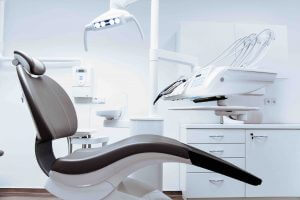
Dentists are highly trained medical professionals who provide invaluable oral healthcare services to Maryland residents. They are also human beings, which makes them just as vulnerable to the same physical and mental impairments as their patients. This includes substance abuse disorders, such as drug and alcohol addiction.
Under Section 4-315(a)(5) of the Maryland Health Occupations Code, a dentist can face disciplinary sanctions if they “provide professional services while under the influence of alcohol” or use any kind of “narcotic or controlled dangerous substance” for non-medical purposes. This does not necessarily mean that a dentist will lose his or her license due to a substance abuse disorder. If the dentist fails to take proactive steps to address the problem, the Maryland State Board of Dental Examiners has the right and the responsibility to take appropriate action to protect the public.
How Can Maryland’s Dentist Well-Being Committee Help?
One action the Board can take is referring a dentist to the Dentist Well-Being Committee. This is a body established by state law to assist dentists who suffer from substance abuse and other health problems. (There is a separate committee that provides similar services to Maryland-licensed dental hygienists.) In addition to Board referrals, any individual who is concerned about a dentist may contact the Well-Being Committee. A dentist may also make a self-referral.
The important thing to understand is that the Well-Being Committee does not serve as a disciplinary or adjudicatory body. On the contrary, its function is to “act as an advocate” for dentists who are willing to confront and treat their substance abuse problems. Once a dentist is referred, the Well-Being Committee will conduct a clinical evaluation to determine the nature and extent of the substance abuse disorder. Then, the parties work together to develop a “treatment agreement.”
In most self-referral cases, information provided to the Well-Being Committee is kept strictly confidential. That is to say, a dentist can voluntarily seek treatment for drug or alcohol addiction without informing the Board or facing formal disciplinary action. Of course, if the Board makes the referral or the Committee has reason to believe the dentist is an active danger to himself or herself or patients, then strict confidentiality does not necessarily apply.
In cases involving Board referrals, once the Committee reaches a treatment agreement with the dentist, its terms may be incorporated into any final settlement related to licensure. For example, if a dentist is reported to the Board for an alcohol abuse disorder, the dentist could agree to undergo treatment and monitoring by the Well-Being Committee for a specified period of time. In exchange, the Board agrees to place the dentist on probation so long as he or she follows the Committee’s treatment plan. This allows the dentist to maintain his or her license without placing the public at undue risk.
Contact a Maryland Defense of Professional Licenses Attorney Today
If you are a practicing dentist suffering from any kind of mental health disorder, you need to seek help right away. This includes both medical treatment as well as legal advice. To speak with a qualified Maryland attorney who handles matters involving dental and professional licenses, call the Law Firm of J.W. Stafford, LLC at 410-514-6099 or contact us online to schedule a confidential consultation right away.
(image courtesy of Daniel Frank)
